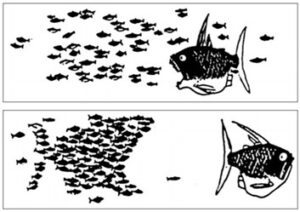About Coopreneur
Coopreneur AS is a non-profit limited company (no dividends to shareholders). Any profits are ploughed back into the company to further pursue its purpose. Namely to show how Cooperative Social Entrepreneurship can be a vehicle for new ways of addressing social, economic and environmental problems. This is so far reflected in 3 initiatives (see more in respective menus):
- Promoting the Community Wealth Building model as a vehicle to operationalise Economic Democracy, (Re-) Localization of the Economy and a Real Circular Economy
- Scalable Course & Business Model Canvas for Cooperative Social Entrepreneurship
-
CareBank App
About the undersigned: Master, Social sciences (geography, political science and social economy). Worked with development issues in Africa and Asia for a decade (1990s). Co-started and worked as general manager of a development-oriented Internet Service Provider in Colombo, Sri Lanka (1996-through 1999). Worked with environmental information in Norway in the 2000s.
Cooperative Social Entrepreneurship as applied here
The above-mentioned course set-up has a thorough discussion of the term and identifies four types of social entrepreneurship. Suffice to note here the following (simplified) distinction:
- ‘Entrepreneurship’ is usually linked to purely commercial companies. For ‘social entrepreneurship’, however, the social objective is typically built into the core of the business model. Far-reaching forms for social entrepreneurship will include goals for system change where economic, social and environmental management responsibilities are combined and operationalized (see more here, section G. ‘tools for system change’).
- ‘Cooperative Social Entrepreneurship’ as understood here is a form of ‘joint social entrepreneurship’, i.e. there is more than one entrepreneur involved in a new initiative or enterprise. The roots here can be found in The Commons, shortly summarised as follows:
A social system for the long-term management of resources that ensures shared values and identity. This ‘community identity’ can be based on geography, as in a local community/region, but also include communities of interest that can be anything from local to global (often linked together in digital networks at different geographical levels).
Originally, the term ‘Commons’ originates from the Middle Ages, describing how local communities used and managed land and resources as commons – for common use and exploitation. Today, the term is used not only for physical commons, but also for created, new resources such as knowledge, computer codes, goods, services, etc.).
Cooperative social entrepreneurship uses a collective toolkit that involves an extension of traditional cooperative principles (see also section F. on this webpage on how today’s cooperatives need to be revitalized) But the cooperative rationale, illustrated below, remains:

When many people join together, individual risk is reduced, the bargaining position is strengthened, and – not least – the potential for positive change increases. Here, collective and personal benefit coincide!
Image credit: https://www.seedsforchange.org.uk/workersco-ops.pdf “This work is anti-copyright. Feel free to copy, adapt, and distribute it as long as the final work remains anti-copyright”.
The focus on economic democracy, real circular economy and (re)localisation of the economy means that social entrepreneurship here gets a clearer value-based anchoring and means of operationalisation. As an example, and as first noted on the front page, a new template for circular businesses can replace Osterwalder and Pigneur’s ‘Business Model Canvas’, the latter more suitable for purely commercial business models within the linear economy.
Helge Selrod
